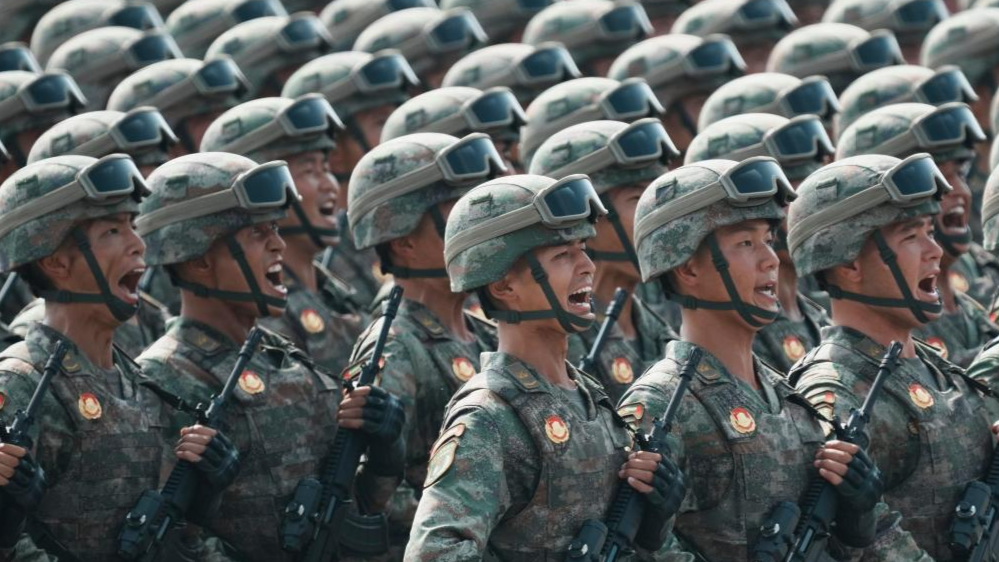
BEIJING - A think tank report released on Friday underlines the great significance and contributions of the Chinese people's resistance against Japanese aggression to the victory in the World Anti-Fascist War.
Titled "Remembering History and Defending Justice -- Great Contributions of the Main Battlefield in the East of the World Anti-Fascist War," the report was published in both Chinese and English by Xinhua Institute, a think tank affiliated with Xinhua News Agency.
This year marks the 80th anniversary of the victory in the Chinese People's War of Resistance against Japanese Aggression and the World Anti-Fascist War. China held grand commemorations, including a massive military parade, in Beijing on Wednesday.
"The World Anti-Fascist War was a unified global struggle, with the Chinese People's War of Resistance against Japanese Aggression forming a vital component," the report says.
It elaborates on the unshakable global significance of the main battlefield in the east and calls for joint efforts to stay on the path of peaceful development and common prosperity.
ALSO READ: China refutes EU official's statements on V-Day commemorations
Main battlefield
The think tank report also affirms the fact that the Chinese theater was the main battlefield in the East of the World Anti-Fascist War eight decades ago.
"China was the foremost target in Japan's expansionist agenda. Consequently, China suffered Japanese aggression earlier and more intensely than any other nation. The Chinese people's resistance was likewise the earliest and most resolute, initiating the World Anti-Fascist War and establishing the world's first large-scale anti-fascist battlefield," it says.
According to the report, the Chinese theater effectively pinned down and engaged the main forces of Japanese militarism, impeding both its "northern advance" toward the Soviet Union and its "southern advance" into the Pacific. This strategic containment disrupted coordination between Japanese and German fascist forces, playing a decisive role in the ultimate defeat of the Japanese invaders, the report says.
From the Lugou Bridge Incident in 1937 to Japan's surrender in 1945, Chinese forces annihilated more than 1.5 million Japanese troops, accounting for over 70 percent of Japan's total military casualties in World War II.
After the outbreak of the war in Europe and the Pacific War, more than 20 countries and regions across Europe, Asia and Africa fell to the fascist invasion.
"Not only did China thwart Japan's attempts to subjugate it, but it also provided crucial strategic support to the Allied war effort and coordinated with strategic actions in both the European and Pacific theaters," the report says.
China also served as a vital rear base for Allied operations against Japan in the Asia-Pacific region, supplying essential strategic materials and military intelligence to the Allies, directly supporting their operations and securing a critical buffer of time for Allied forces, the report adds.
World national liberation movement
The Chinese victory in the war of resistance against Japanese aggression not only laid a solid foundation for China's own liberation but also profoundly inspired freedom struggles throughout oppressed nations as well as colonial and semi-colonial territories, the report says.
The victory inspired confidence and courage in oppressed colonial and semi-colonial countries worldwide to fight for national independence and liberation, the report says.
Meanwhile, the revolutionary theories and practices developed by the Communist Party of China during the war offered viable liberation strategies for oppressed nations worldwide, it adds.


